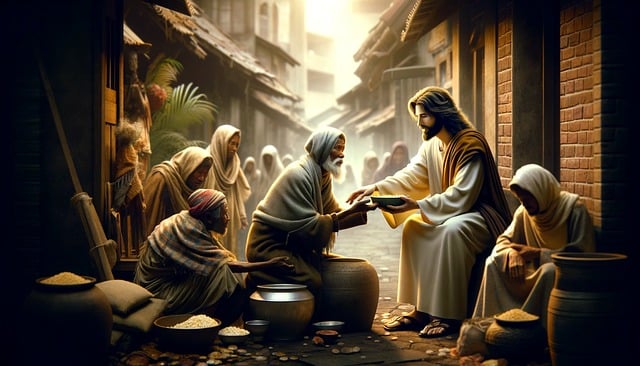Part 5 of the series ‘Desert Spirituality’ Gratitude Begets Gratitude
Part 5 of the series ‘Desert Spirituality’ Gratitude Begets Gratitude Submitted to Red Rock News for 11/29/24 Rev. Dona Johnson |November 24, 2024 Are you feeling grateful this Thanksgiving? If so, what are you grateful for? Henri Nouwen suggests gratitude is the most fruitful way of deepening your consciousness that you are not an “accident,” but a divine choice. “It is important to realize how often we have had chances to be grateful and have not used them. When someone is kind to us, when an event turns out well, when a problem is solved, a relationship restored, a wound healed, there are very concrete reasons to offer thanks: be it with words, with flowers, with a text, a card, a phone call, or just a gesture of affection. . . ”Every time we decide to be grateful it will be easier to see new things to be grateful for. Gratitude is one of the identifying virtues for any follower of Jesus Christ. An enemy of gratefulness focusing on what we don’t have. Better said, living a life of lack. Maybe someone or something in your life is not meeting your expectations. So, rather than focus on the goodness in a person or situation, we become obsessed with what we feel is lacking, and that morphs into feelings ungrateful and resentment—a vicious cycle. Sometimes we can become so focused on what we think is wrong around us that we lose sight of God’s blessings. We develop an attitude that the grass is greener on the other side of the fence that stymies a life of gratitude. We become less grateful and thus less gracious and this leads to complaining. This can happen without our ever realizing it. Who wants to be around a person who complains all the time and a person who is not gracious? Gratitude is the opposite of resentment, in Latin it means gratia, favor. Gratitude is not an occasional ‘thanks be to God,’ but the way of the heart, a heart turned towards God’s favor. Gratefulness takes away our fatigue and the apathy we often feel when we become distracted with discontent. Much of the discontent we feel towards others flows out of the dissatisfaction we have with ourselves. But moving away from resentment requires moving toward something that is life-giving, and that something is gratitude. Gratitude looks towards the future, towards what could be and sees new possibilities. What are some of the little things you are grateful for? Maybe it’s having that first cup of hot coffee in the morning. What about a beloved friend who is always there to support you? What about the breathtaking view of the mountains out your window? What about thanking God that you have eyes to see, ears to hear, legs to move and hands to grasp? Gratitude…goes beyond the “mine” and “thine” and claims the truth that all of life is a pure gift, a gift from God to be cherished in ourselves and in others. In the end “gratitude” is a choice we make.Jesus modeled gratefulness perfectly! He continually, raised his head and eyes upward thanking his heavenly Father, whether it was multiplying a few loaves of bread and fish to feed 5000 people (Matt. 14:19), or breaking bread with the disciples on the road to Emmaus (Luke24:30), or the miracle of raising Lazarus from the dead (John 11:41). Again, before Jesus was to be arrested and crucified, Jesus gave holy communion to his disciples at the meal of the Passover—the Last Supper. He lifted the bread and cup towards heaven and gave thanks (Matt. 26:27). In fact, in many congregations, every Sunday, holy communion is celebrated at the climax of each worship service. It is called the Great Thanksgiving—because it is “great,” it is God’s amazing grace penetrating the human heart in the bread and the cup. It is a foretaste of the gloriously feast to come for all God’s people. So, as image bearers of Jesus, on this weekend before Thanksgiving, wherever you are in life and in whatever situation you find yourself, reach out to someone and share something of yourself with others— be kind, be generous and look for the goodness of God in others. Celebrate life, the living. You have a Savior, Christ the Lord who adores you. And in him, you have more than you could ever imagine. Remember, gratitude begets gratitude, just as love begets love. May boundless blessings of God fill your heart with gratitude! Rev. Dona Johnson |November 24, 2024
Part 5 of the series ‘Desert Spirituality’ Gratitude Begets Gratitude Read More »




